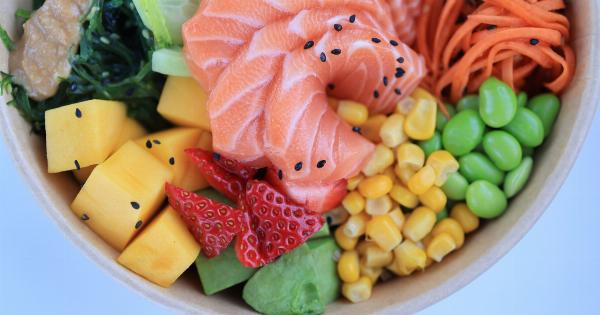Hearing loss is a common problem that affects people of all ages. It can have a profound impact on our quality of life, affecting our ability to communicate and enjoy everyday activities.
While hearing aids and other medical interventions are available to help manage hearing loss, recent research suggests that a simple dietary change could also play a significant role in maintaining and improving our hearing abilities. A study has shown that including more fruits and vegetables in our diet can have a positive impact on our hearing health.
The Link Between Diet and Hearing Health
Several studies have explored the association between diet and hearing health, and the results consistently point towards the benefits of consuming a diet rich in fruits and vegetables.
Fruits and vegetables are packed with essential vitamins, minerals, and antioxidants, which have been found to support overall health by reducing inflammation, preventing oxidative stress, and enhancing cellular functions. These properties are believed to have a protective effect on the delicate structures of the inner ear, thus influencing hearing health.
The Role of Antioxidants in Hearing Health
Antioxidants are compounds found abundantly in fruits and vegetables that help neutralize harmful free radicals in the body.
Free radicals are unstable molecules that can cause damage to cells and tissues, contributing to various health problems, including hearing loss. By incorporating a variety of antioxidant-rich foods, individuals can enhance their body’s defense mechanisms against oxidative stress, reducing the risk of age-related hearing loss and other hearing disorders.
Fruits That Promote Hearing Health
Certain fruits have been found to possess specific nutrients that are beneficial for hearing health. Including these fruits in your diet can be an excellent way to support your auditory system:.
1. Blueberries
Blueberries are known for their high levels of antioxidants, particularly anthocyanins. These antioxidants have been shown to reduce the risk of age-related hearing loss.
They also help improve blood flow and circulation, which is essential for optimal auditory function.
2. Oranges
Oranges are an excellent source of vitamin C, one of the most potent antioxidants. Vitamin C helps boost the immune system and improves blood flow to the inner ear.
It also plays a significant role in preventing conditions like Meniere’s disease that can lead to hearing impairment.
3. Kiwi
Kiwi is rich in vitamin C, as well as other essential nutrients like vitamin E, potassium, and folate. These nutrients work synergistically to promote overall ear health and reduce the risk of hearing loss.
4. Pomegranates
Pomegranates are packed with antioxidants and have been found to improve blood circulation, making them beneficial for hearing health. They also contain vitamins A and C, which help prevent ear infections and reduce inflammation in the auditory system.
5. Strawberries
Strawberries are not only delicious but also rich in antioxidants and vitamin C. Regular consumption of strawberries has been linked to a reduced risk of age-related hearing loss, making them a tasty addition to any hearing-healthy diet.
Vegetables That Promote Hearing Health
Similar to fruits, certain vegetables offer unique nutrients that support hearing health. Here are some vegetables that you should consider incorporating into your diet:.
1. Spinach
Spinach is a nutritional powerhouse, loaded with vitamins A and C, folate, magnesium, and iron. These vitamins and minerals work together to promote healthy blood flow and protect the delicate structures of the inner ear from damage.
2. Carrots
Carrots are rich in beta-carotene, a precursor to vitamin A. Vitamin A is crucial for maintaining the health of the mucous membranes in the ear, which trap bacteria and prevent infections.
Including carrots in your diet can help support a well-functioning auditory system.
3. Broccoli
Broccoli is packed with nutrients, including vitamins C and K, folate, and fiber.
Vitamin C in broccoli supports the immune system and helps protect against age-related hearing loss, while vitamin K has been linked to improved cognition and reduced risk of hearing impairment.
4. Sweet Potatoes
Sweet potatoes are an excellent source of beta-carotene, vitamin C, and potassium. Beta-carotene gets converted to vitamin A in the body, promoting ear health, while vitamin C and potassium contribute to overall auditory system functions.
5. Bell Peppers
Bell peppers are rich in vitamin C and antioxidants like lutein and zeaxanthin, which are vital for maintaining healthy hearing as we age. They also support the immune system and help reduce the risk of ear infections.
Conclusion
While hearing loss is often considered an inevitable part of aging, research suggests that dietary modifications can significantly impact our hearing health.
Including a variety of fruits and vegetables in our daily meals provides essential nutrients, antioxidants, and vitamins that support the optimal functioning of our auditory system. By incorporating these hearing-healthy foods into our diet, we can potentially reduce the risk of age-related hearing loss and maintain better hearing as we age.






























